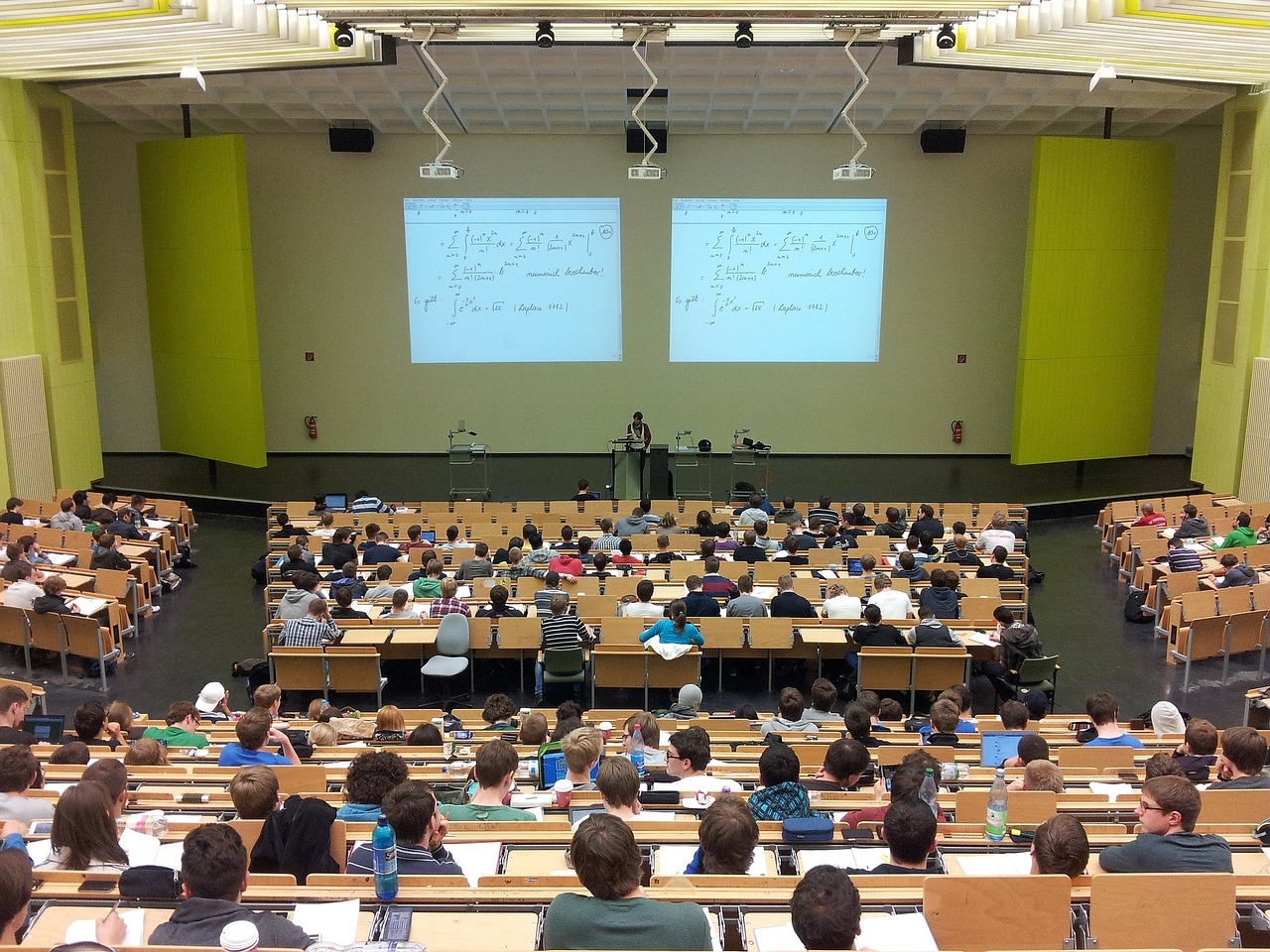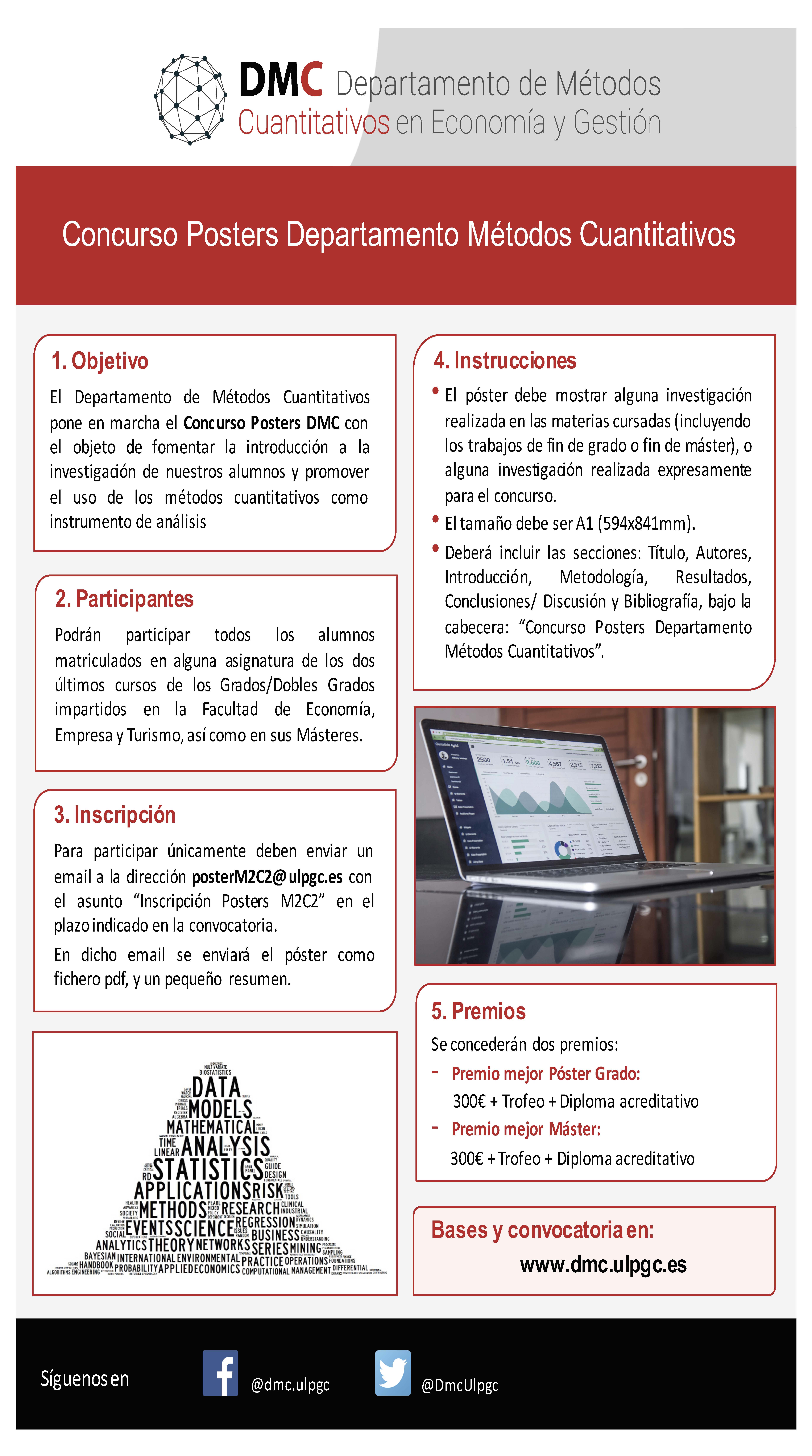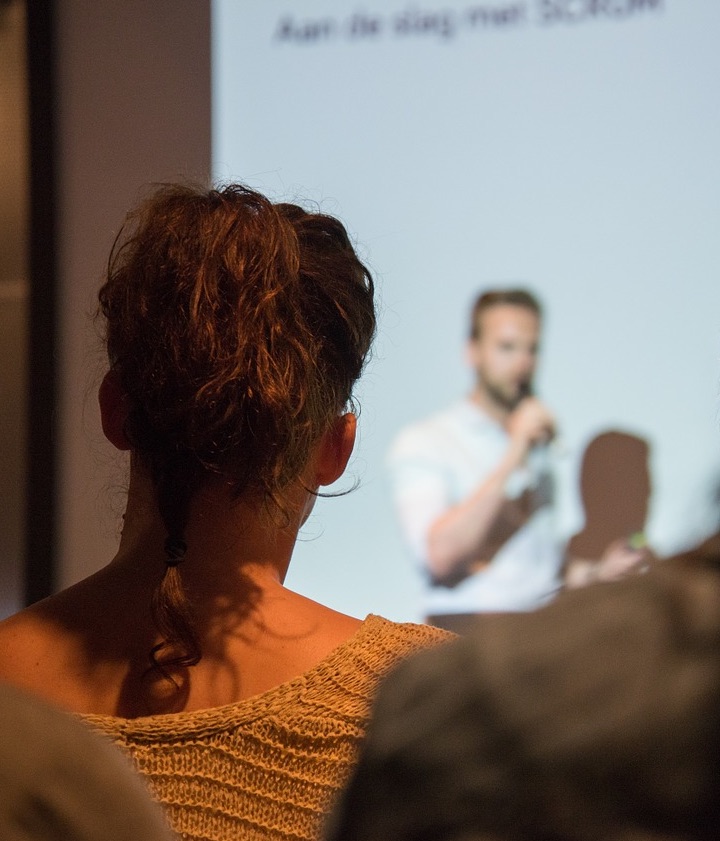Noticias
Seminario / Seminar [26-10-2018]
Gumbel distribution with heavy tails and applications to environmental data
Ponente/Speaker: Héctor W. Gómez (Dpto. Matemáticas. Universidad de Antofagasta, Chile.).
Emai:
Web: http://www.uantof.cl/departamentos/matematicas
Fecha/Date: 26-10-2018.
Lugar/Venue: Aula de Informática D3.6.
Hora/Time: 12:00.
Resuelto II Concurso Pósters DMCEG
Reunido el Comité Científico con fecha 24 de Septiembre de 2018, se ha decidido unánimemente emitir el siguiente fallo a la convocatoria del Concurso de Pósters del Departamento de Métodos Cuantitativos en Economía y Gestión (Curso 2017-18):
Premio al mejor póster de Grado:
Concedido al póster titulado: Predicción, a través de datos contables, del comportamiento no socialmente responsable en cuanto al empleo de las empresas hoteleras.
Autor: José Francisco Lorenzo Hernández (Doblegrado Informática-ADE)
Premio al mejor póster de Máster: Declarado desierto.
El acto de entrega de premios será el Viernes 5 de Octubre a las 13:30 en la sede del Departamento (3ª Planta del Módulo D).
Seminario / Seminar [19-10-2018]
Air pollution and tourism demand: A case study of Beijing, China
Ponente/Speaker: Dra. Xiaoge Zhou (Tourism Management Department. Shandong University, Weihai, China.).
Email:
Fecha/Date: 19-10-2018.
Lugar/Venue: Aula de Informática D3.6.
Hora/Time: 12:00.
Seminario / Seminar [28-09-2018]
Title: Tourist segmentation method with Big Data using complex networks
Ponente/Speaker: J.M. Hernández (ULPGC).
Email:
Web: http://dmc.ulpgc.es/en/juan-hernandez-2.html
Fecha/Date: 28-09-2018.
Lugar/Venue: Aula de Informática D3.6.
Hora/Time: 12:00.








